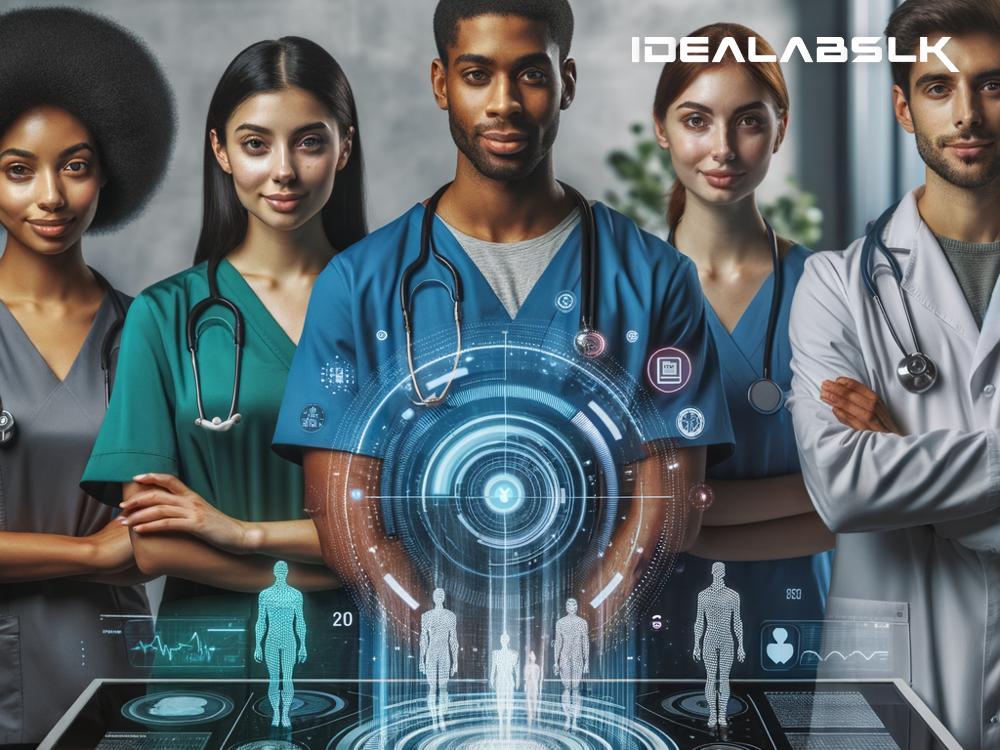In the realm of healthcare, the margin for error is incredibly slim. After all, it's not just numbers or data at stake—it's people's lives. From doctors making diagnoses to pharmacists dispensing medications, every step in the healthcare process carries the weight of potential human error. But there's an increasingly powerful ally on the frontlines combatting these errors: Artificial Intelligence (AI).
AI-based systems in healthcare are like having an ultra-smart, never-tired assistant that's always at the ready to offer a second opinion, sift through mountains of data, or remind healthcare providers of key information at the perfect moment. Let's explore some of the ways AI is reducing human error and making healthcare safer for everyone.
Diagnostic Accuracy
One of the critical areas where AI is making significant strides is in diagnostics. Diagnosing a patient correctly is often the first step in their treatment, and mistakes at this stage can lead to wrong treatments and worsened outcomes. AI algorithms, particularly those based on deep learning, have shown incredible abilities in image recognition tasks. This means they can analyze medical images like X-rays, MRIs, and CT scans with high accuracy, sometimes even outperforming seasoned radiologists in spotting abnormalities. By providing a second opinion, AI can reduce the likelihood of misdiagnosis and ensure patients receive the correct treatments from the start.
Medication Errors
Medication errors are another major concern in healthcare. These can range from prescribing the wrong medication or dosage to dispensing errors at the pharmacy. AI systems can help reduce these errors by cross-referencing patient records, allergies, and current medications to flag any potential issues before they happen. Some AI applications also assist in dosing, particularly in complex cases like chemotherapy, where the margin for error is very narrow. By performing real-time analyses and leveraging historical data, AI can suggest the most accurate dosage, reducing the risk of adverse drug interactions or other complications.
Workflow and Administrative Tasks
A substantial portion of medical errors can be attributed to administrative mistakes—misfiled paperwork, lost lab results, or failure to follow up on critical patient tests. Here too, AI comes to the rescue. AI-based systems can organize and manage patient data more efficiently than ever before. They automate routine tasks, remind healthcare providers of important to-dos, and ensure that critical information is at the providers' fingertips exactly when they need it. This level of organization and promptness can significantly decrease the chances of errors related to workflow and administrative tasks.
Predictive Analytics
Predictive analytics is another area where AI shines. By analyzing vast amounts of healthcare data, AI systems can predict which patients are at risk of developing certain conditions or experiencing complications. This allows healthcare providers to intervene early, perhaps even before the patient realizes anything is wrong. For patients with chronic illnesses, these predictions can help in adjusting treatments to prevent exacerbations or complications, ultimately leading to more stable and healthier outcomes.
Remote Monitoring and Intervention
Lastly, AI is enhancing the way healthcare providers monitor patients outside of the traditional clinical setting. Wearable devices and at-home monitoring systems equipped with AI can analyze data in real-time, detecting anomalies that may indicate a need for intervention, such as a sudden rise in blood pressure or glucose levels. These systems can alert both the patient and their healthcare provider, prompting immediate action that can prevent severe episodes or complications.
In conclusion, AI's contributions to reducing human error in healthcare are profound and multifaceted. From improving diagnostic accuracy to preventing medication errors, organizing patient data, offering predictive insights, and enhancing remote patient monitoring, AI is playing a crucial role in making healthcare safer and more effective. As these technologies continue to evolve and become more integrated into everyday healthcare practices, we can expect to see even greater reductions in human error—and, most importantly, better outcomes for patients. The exciting part is, this is only the beginning. AI's potential in healthcare is vast, and as we continue to harness it, the future of healthcare looks brighter and more dependable than ever before.

